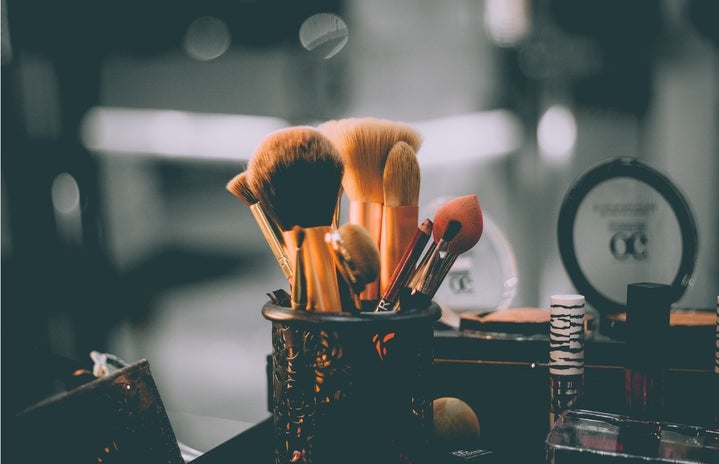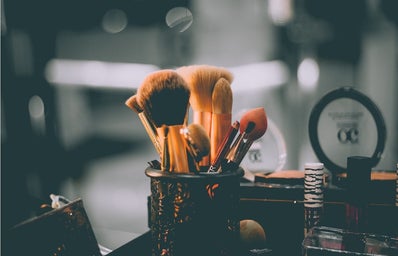We live in an era of social reform movements. Campaigns such as Who Needs Feminism? started right on Duke’s campus are building momentum in the realm of social justice. Social media outlets like Facebook and Twitter enable us to raise awareness about virtually any issue, making it easy to transform the average citizen into some sort of activist. Whether any or all of these movements makes tangible progress is another question, but an undeniable sense of righteousness hangs in the air as new causes flower into the public eye.
Miss Representation is one of those causes that recently hit it big on the media trail. This organization, with namesake film directed by Jennifer Siebel Newsom, seeks to expose “how American youth are being sold the concept that women and girls’ value lies in their youth, beauty and sexuality.” And we let it happen. The aim of the campaign is to startle such inactivity and inspire consumers – men and women alike – to fight the systemic misrepresentation of women in the media. The sad truth is that the producers of mass media have no incentive to change unless we supply them with it. And with this film, the conversation has started.
You can watch videos by Miss Representation on their Vimeo page to inform yourself of some shocking statistics about media portrayal and its effects. Watch Cause and Effect: How the Media You Consume Can Change Your Life to find out what happens to “3 out of 4 girls after leafing through a fashion mag” for just 3 minutes. I bet you’ll find at least one statistic in there that surprises you.
Miss Representation and other women’s campaigns, such as America the Beautiful and Dove’s Campaign for Real Beauty, are doing what they can to uncover and counter unrealistic paragons of females in the media. And they are using the very same outlets as the enemy – TV, print, and Internet – to spread their messages because, after all, media is the source of the problem, and in this case it’s okay to fight fire with fire. But after watching all the videos, signing the petitions, and reading the statistics, one has to wonder, “Are these awareness campaigns really making a change in the way women are marketed?”
This question is rendered virtually unanswerable by the sheer, infinite range of media and the difficulty in knowing how and where progress is made. For me, the mass media still remains rather static. I wish it were otherwise, but just take a look at websites a lot of us Dukies frequent like Pinterest and Tumblr, and it will not be difficult to discover that the majority of the most popular images are of slender, “flawless,” almost porcelain-looking girls. Online communities of youth supporting each other in their drastic dieting efforts and calling it “thinspiration” are rampant. Why, if we are so easily equipped with the most sordid statistics about the effects of such pictures on our own self-esteem, do we continue to propagate the very cause of our insecurities?
The answer to this lies not in the failure of social reformists, for if their immediate goals are to disseminate knowledge and empower people, they readily achieve such ends with access to powerful tools like film and the Web. Nor does the answer lie in the hands of the antagonist, good ol’ Cosmo magazine and Playboy ads. Regardless of whether we admit to scooting the blame from ourselves, we are the main reason the media hasn’t changed much in the last century. This is obviously not rocket science – but it’s pretty hard to grasp in practical terms. The dangers of the media rest in our day-to-day activity. Whenever you “tweet” about the Victoria’s Secret Fashion Show models or “repin” a picture of a young, gaunt teenage girl wearing scanty clothing and call it “fashion inspiration,” you are feeding the vicious cycle that many of us complain about in the first place.
In the end, the blame is ours. Social movements can make remarkable progress, but they can only go so far. They can’t get inside your mind and rewire your brain. You have to be amenable to change and make yourself think twice about the effect YOU are having on unrealistic expectations of beauty. If you’re going to complain about them, you best not be behind the scenes fitting the costumes.
Sources: Missrepresentation.org (http://www.missrepresentation.org/about-us/), Vimeo.com (http://vimeo.com/38593312), Upworthy.com (https://www.upworthy.com/what-happens-to-3-out-of-4-girls-after-leafing-…)
Photo Sources: Thelearnedfangirl.com (http://thelearnedfangirl.com/wp-content/uploads/2012/02/thumb.php_.png ), Nadinejolie.com (http://nadinejolie.com/blog/wp-content/uploads/2011/07/Dove-Campaign-for… ), Tumblr.com (http://fashionwithoutcolour.tumblr.com/post/13961678249), Stock.xchng (http://www.sxc.hu/photo/767117)

